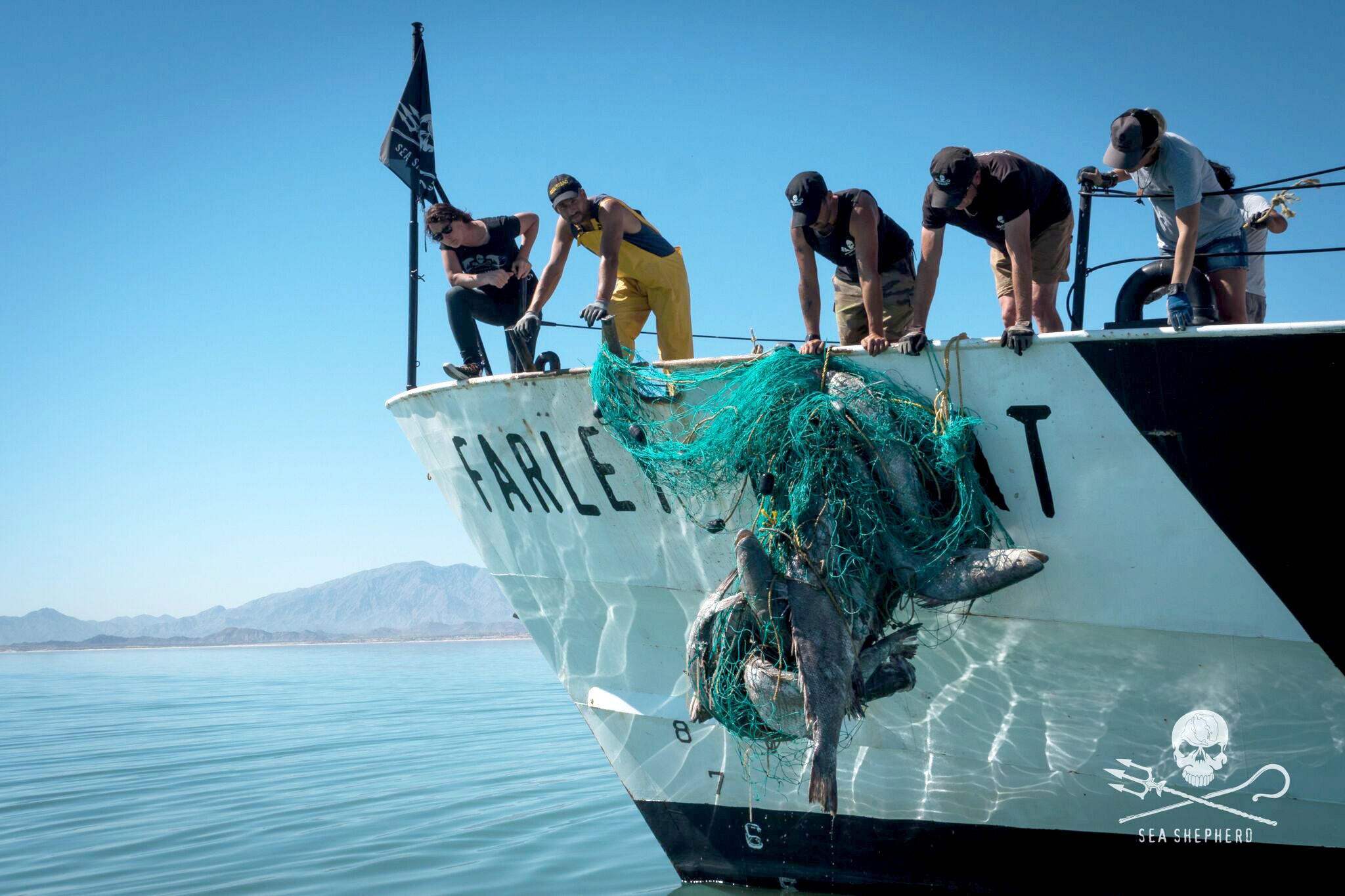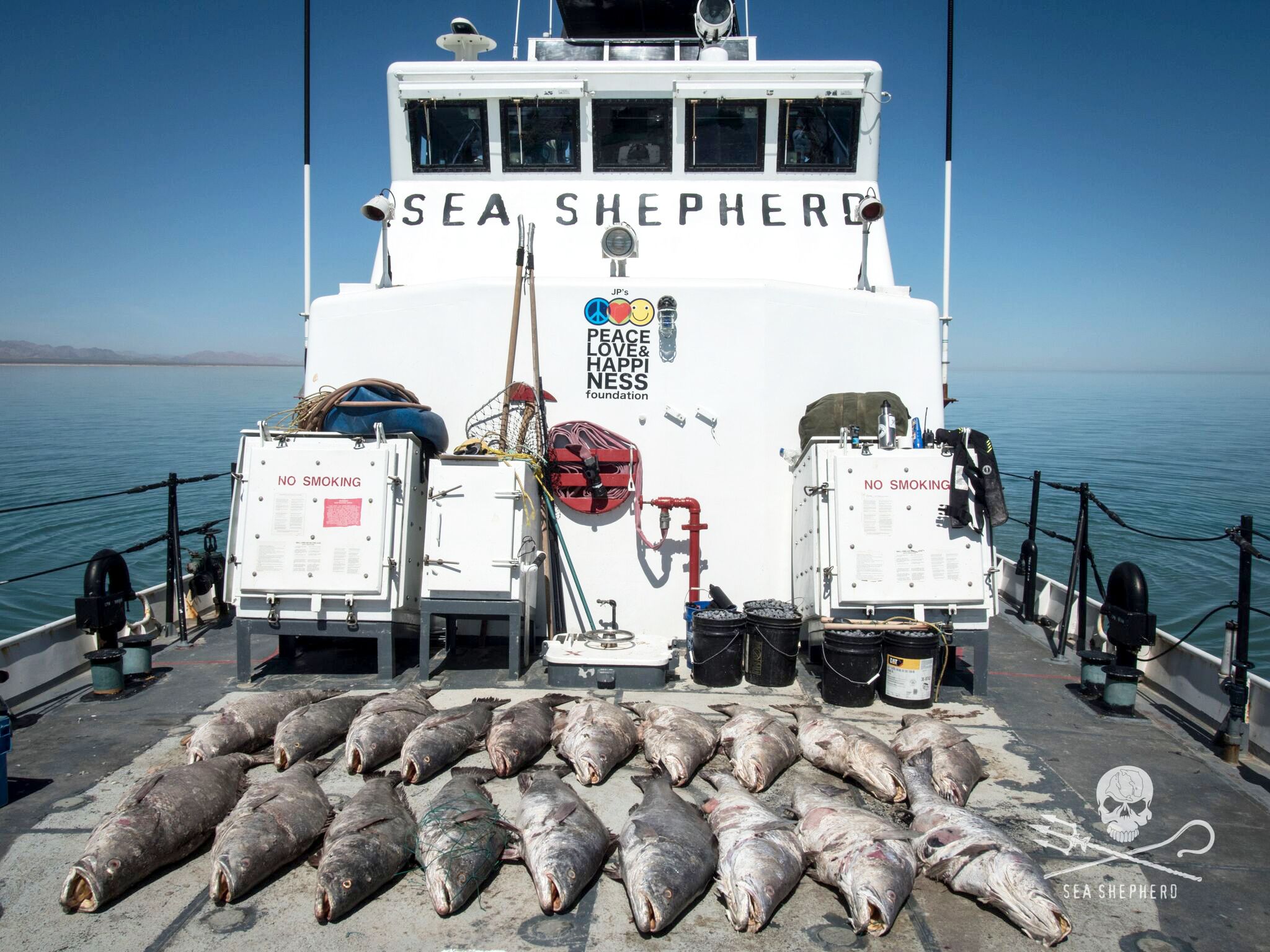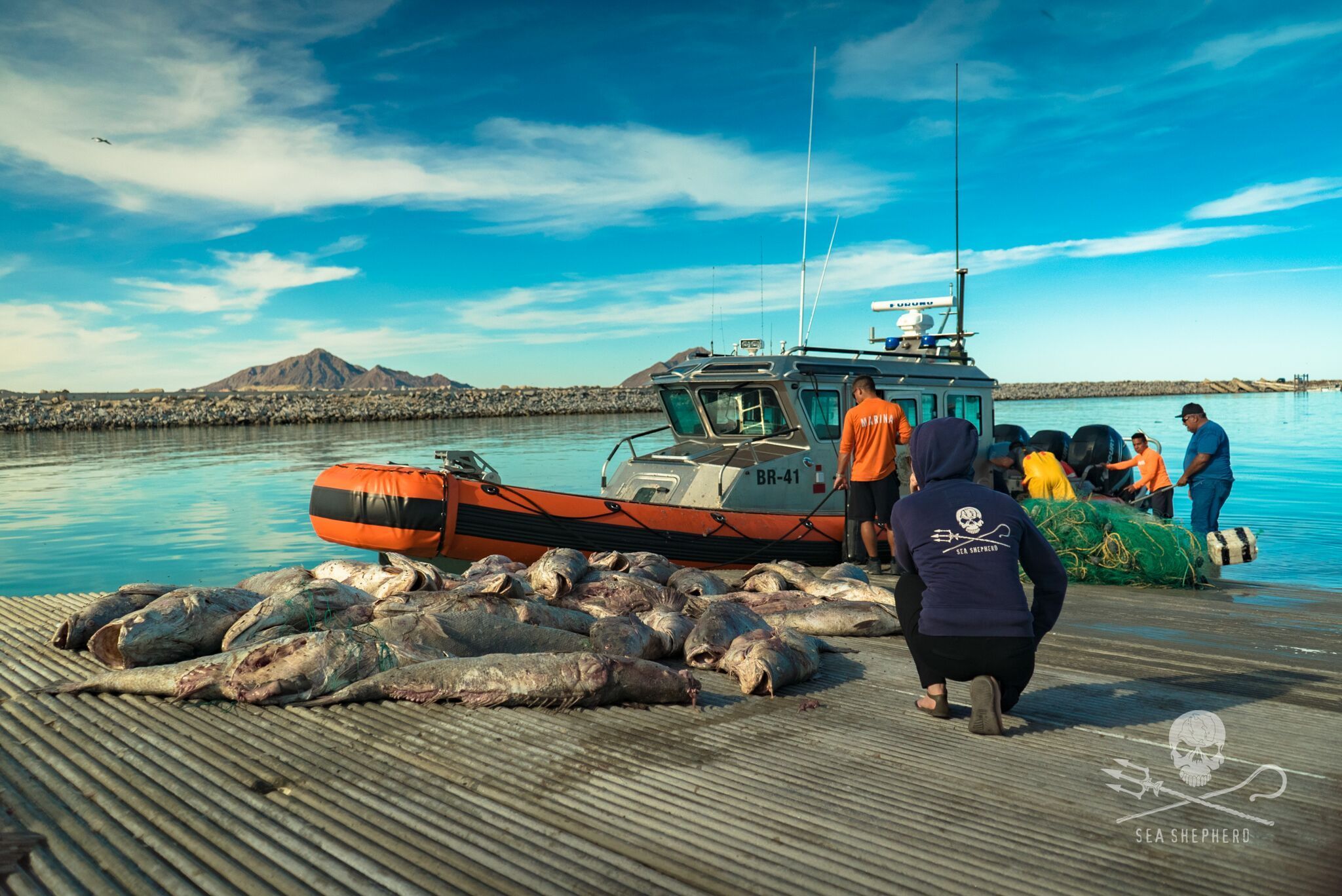
66 Totoaba Found Dead in a Single Net, Dead Newborn Vaquita Washes Ashore

Photo credit: Sea Shepherd Conservation Society
With the near-extinct vaquita porpoise now numbering less than 30, conservation was dealt a blow on March 12, when Sea Shepherd found a dead newborn vaquita on the beach just 33 km south of San Felipe, in the Northern area of the Gulf of California.
The non-profit marine conservation society’s anti-poaching ships, the M/V Farley Mowat and M/Y Sam Simon, have been patrolling the upper Gulf since last fall as part of Operation Milagro III to save the vaquita and the endangered totoaba bass.
[facebook https://facebook.com/EcoWatch/videos/1485365468143052/ expand=1]
The body of a second, adult vaquita was reported to the crew not far from where the neonate was found, but after several days of searching by the crew, it has yet to be located. However, the locals who spotted it took pictures and gave them to Sea Shepherd in hopes that its body would still be found.
Sea Shepherd handed over the baby vaquita corpse to the Mexican authorities and a necropsy will be performed to determine the cause of death. The most common cause in the Gulf of California for the vaquita is getting caught in one of the numerous illegal gillnets hidden underwater, set up to trap the totoaba bass. Both the vaquita and the totoaba are similar in size and once the vaquita becomes entangled in the net, it is unable to reach the surface of the water to breathe, causing it to drown.

“Under the stress of fighting for its life, a mother could have discharged the calf,” hypothesized Operation Milagro campaign leader Captain Oona Layolle.
A female vaquita gives birth to a calf approximately once every two years. It is not known if the adult vaquita body spotted by locals was the newborn’s mother or not.
Unprecedented Number of Dead Totoaba in One Net

The marine life devastation in the Gulf of California continued March 14, when the M/V Farley Mowat found and retrieved a net containing 66 dead totoaba. A 67 one was found alive and set free.
Illegal fisherman and the Mexican criminal cartels target the totoaba just to export its swim bladder for sale on the black market in China and Hong Kong for unsubstantiated medicinal properties. There it can fetch more than $20,000 per kilo. Due to this high street value, the totoaba bladder is frequently referred to as “aquatic cocaine” and is the only reason these animals are being killed.

“We never found as many dead totoaba in one net,” said Captain Layolle, who was on hand to witness their destruction by the Federal Agency of the Environmental Protection after the carcasses were handed over to the Mexican government organization. “It was heartbreaking and disgusting to see so many animals die to feed the Chinese demand for swim bladders. The trafficking of their swim bladder is destroying the entire ecosystem of the Gulf of California.”
“The illegal fishing activity has never been so dramatic here in the Gulf of California,” Captain Layolle continued. “We have been witnessing poacher’s activity day and night. High season for totoaba poaching is now hitting hard. It is having a huge impact on the biodiversity of this place; this is our last chance to save the species from extinction. But it seems that human ignorance and greed won’t stop.”

Sea Shepherd founder Captain Paul Watson added: “We are on the threshold of the doorways to extermination of many marine species. If we lose the vaquita, what next? Sea Shepherd needs all the help we can get to prevent the extinction of the world’s smallest and most endangered porpoise.”

 233k
233k  41k
41k  Subscribe
Subscribe 